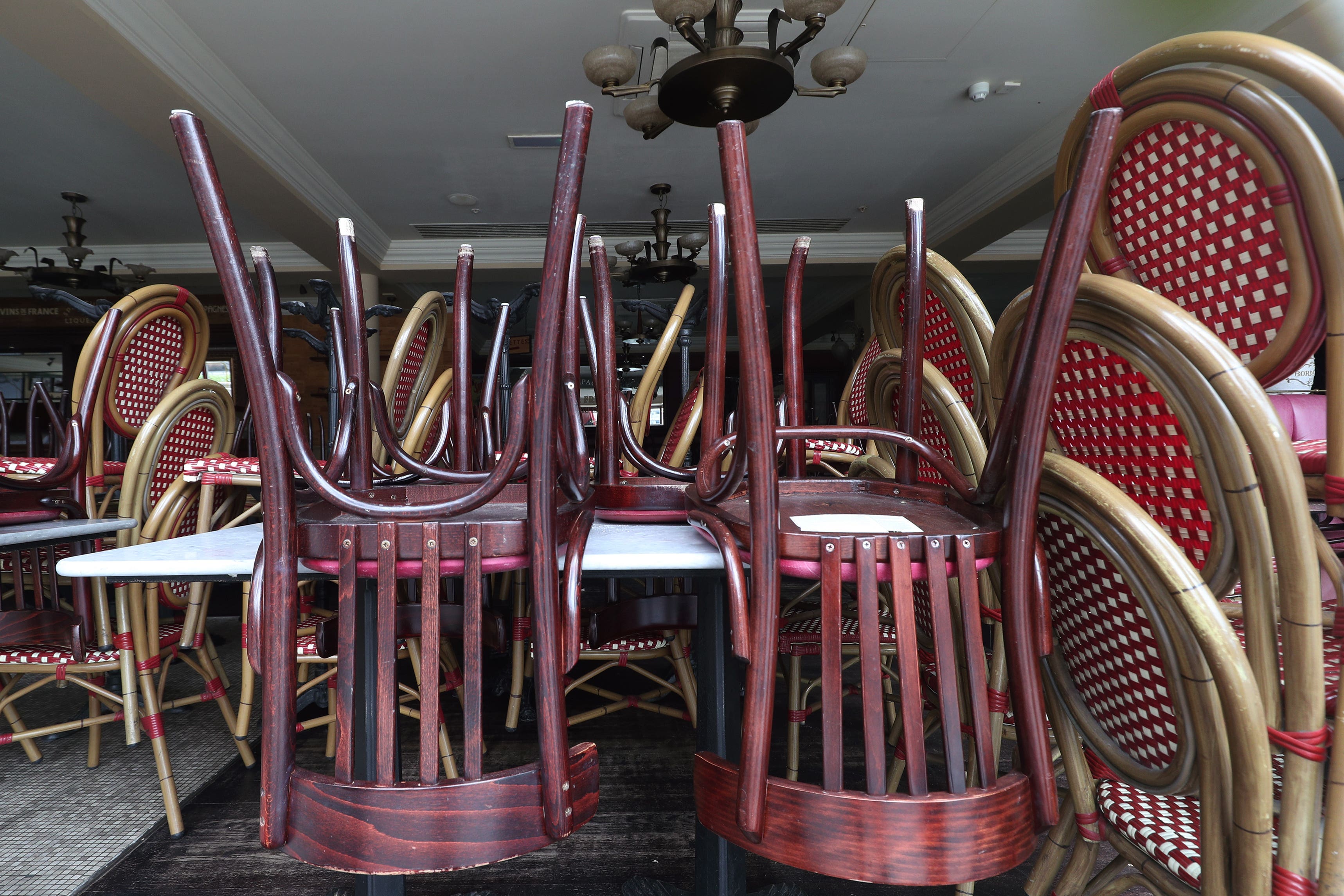Restaurant company insolvencies rise by 59% over past year
As well as increasing food and energy costs, restaurants have been hit by shortages of staff, particularly for skilled roles such as chefs.

Your support helps us to tell the story
From reproductive rights to climate change to Big Tech, The Independent is on the ground when the story is developing. Whether it's investigating the financials of Elon Musk's pro-Trump PAC or producing our latest documentary, 'The A Word', which shines a light on the American women fighting for reproductive rights, we know how important it is to parse out the facts from the messaging.
At such a critical moment in US history, we need reporters on the ground. Your donation allows us to keep sending journalists to speak to both sides of the story.
The Independent is trusted by Americans across the entire political spectrum. And unlike many other quality news outlets, we choose not to lock Americans out of our reporting and analysis with paywalls. We believe quality journalism should be available to everyone, paid for by those who can afford it.
Your support makes all the difference.Restaurant company insolvencies have increased by 59% over the past year, according to research.
The total has risen from 984 in 2020/21 to 1,567 in 2021/22, according to advisory firm Mazars.
In the past three months, the number of restaurant companies becoming insolvent rose to 453 from 395 the previous quarter, it added.
It is a very toxic mix of rising input costs, sharply rising finance costs and weak demand. Most restauranteurs have not seen this combination of negative factors before
As well as increasing food and energy costs, restaurants have been hit by shortages of staff, particularly for skilled roles such as chefs, said the report.
Some restaurants have revealed they will be cutting their trading hours to save on the cost of energy.
Rebecca Dacre, partner at Mazars, said: “Insolvencies of restaurant businesses are now happening at a far faster rate than during Covid.
“It is a very toxic mix of rising input costs, sharply rising finance costs and weak demand. Most restauranteurs have not seen this combination of negative factors before.
“The Christmas trading period is usually a bumper period for hospitality businesses. However, restaurants will be bracing themselves for a very tough winter and many face a real battle to keep afloat.
“There’s a certainty of further insolvencies if they don’t receive much more support from the Government, but the chances of the Government fully turning on the taps is low.”